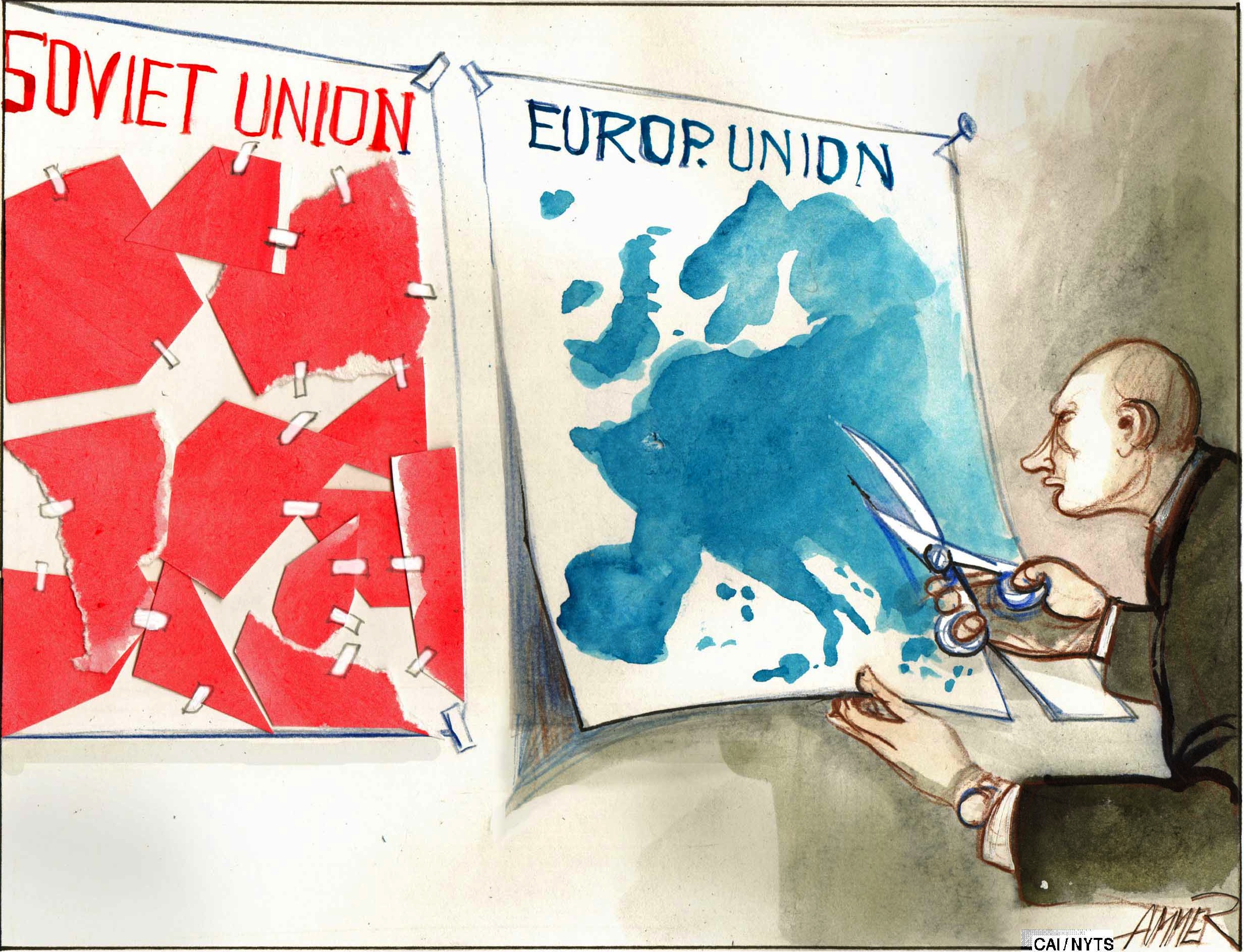More than 18 months after former President Viktor Yanukovych was driven from power (and into exile), the crisis in Ukraine is at a stalemate. Crimea has been reabsorbed by Russia (in what many consider an annexation); much of eastern Ukraine is held by pro-Russia rebels; and relations between the West and Russia are more tense than at any time since the early days of the Cold War.
But can anyone claim an advantage? Those who wanted to see Ukraine anchored in the West, or imagined that sanctions on Russia would incite regime change in the Kremlin, by palace coup or popular uprising, have seen their hopes dashed: President Vladimir Putin's popularity is as high as ever. In Russia, those who predicted the immediate collapse of Ukraine and the establishment in its eastern and southern provinces of a pro-Russian "Novorossia" have been similarly disappointed.
The tragedy is that the price of these illusions has been huge in human terms — the cease-fire-defying death toll in eastern Ukraine has risen to more than 6,000 since April 2014 — and dangerously high in geostrategic terms as well. It looks like both sides are ready to fight "to the last Ukrainian."



















With your current subscription plan you can comment on stories. However, before writing your first comment, please create a display name in the Profile section of your subscriber account page.